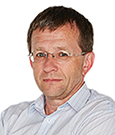
Vladimir Benes
EMBL Heidelberg
Germany
EMBO Practical Course
Proof of COVID-19 vaccination or recovery is required to attend this on-site course. Please see EMBL’s COVID-19 safety policy for on-site events.
Humanized mouse engraftment models (human immune system and/or human tissue) are an integral part of basic and translational research for the understanding of human diseases and for development of new therapies. The Ebola Virus outbreak has demonstrated the relevance of humanized mouse models for the understanding of emerging diseases and testing new medicines. The same can apply for the Coronavirus (COVID-19) pandemic. “Big pharma” and biotech companies include humanized mice in their pre-clinical development portfolio to test efficacy and safety of anti-cancer drugs. These platforms provide researchers and drug developers with human specific targets, physiological pathways and mechanisms of disease not found in traditional mouse models of disease. These aspects of the humanized models allow direct testing of human versus mouse specific therapies enabling more rapid drug development and the generation of more clinically relevant data. During the last decade these models have substantially diverged among laboratories regarding the mouse strains used, mouse handling, analyses techniques and sources of human material. This experimental variability is expected as the field is dynamic and growing rapidly, but the data documentation and reporting should be better standardized for metadata analyses.
This course will teach the participants the principles of experimental pre-requisites and harmonized analyses (e.g., flow cytometry, RNA sec and genomic analyses).
This course is aimed at principal investigators, postdocs, clinicians, and PhD students who have already experience with humanized mouse models and would like to refine their analysis methods as well as get an overview of available models that might fit best to their research question.
Conceptual and practical aspects for generation and uses of humanized models:

EMBL Heidelberg
Germany

Duke University School of Medicine
USA

The Francis Crick Institute
UK
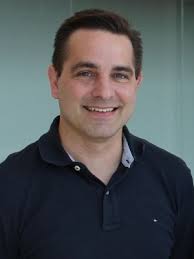
UMass Chan Medical School
USA
(Virtual Speaker)
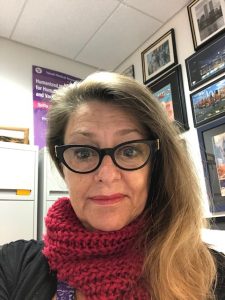
Naval Medical Research Center
USA
(Virtual Speaker)
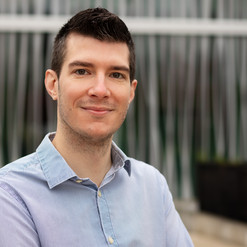
Berlin Institute of Health at Charité
Germany
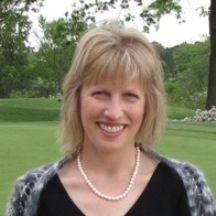
U.S. Food & Drug Administration
USA
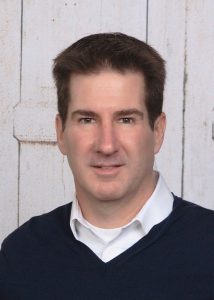
University of California, Los Angeles
USA
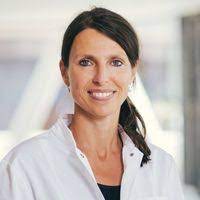
University Hospital Tübingen
Germany
(Virtual Speaker)
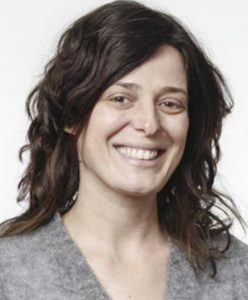
The Jackson Laboratory
USA
(Virtual Speaker)
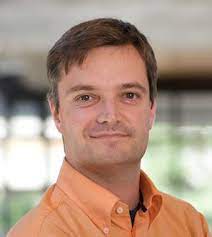
University of Zurich
Switzerland
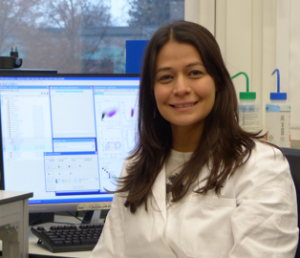
EMBL Heidelberg
Germany
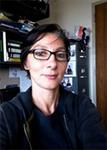
University of Colorado Anschutz Medical Center
USA
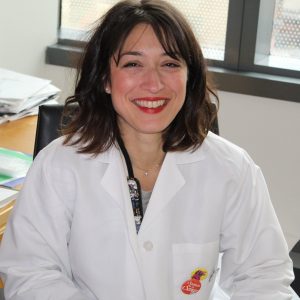
Takeda Pharmaceutical Company Limited
USA
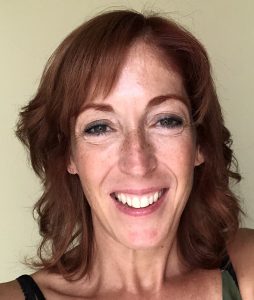
Bernhard Nocht Institute for Tropical Medicine
Germany
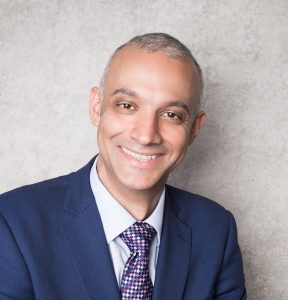
University of Cambridge
UK
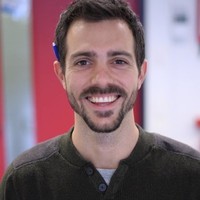
Roche Innovation Center Zurich
Switzerland
(Virtual Speaker)
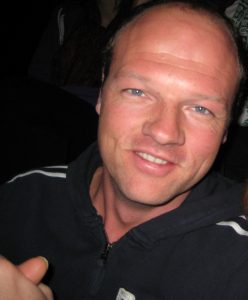
University of Groningen
The Netherlands
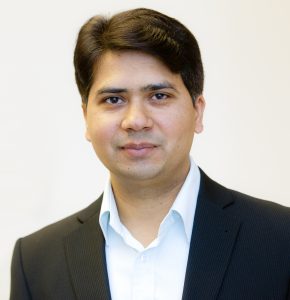
Hannover Medical School
Germany

The Jackson Laboratory
USA
(Virtual Speaker)
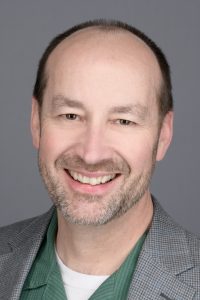
The Jackson Laboratory
USA
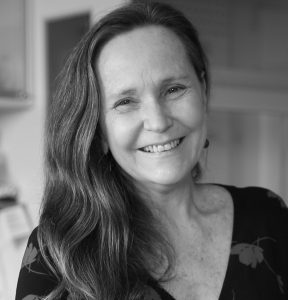
Hannover Medical School (University of Cologne from 01.07)
Germany
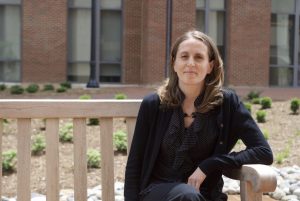
The University of North Carolina at Chapel Hill
USA
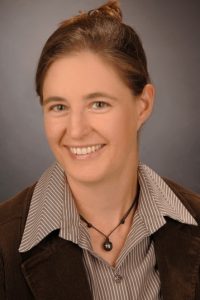
University Hospital Regensburg
Germany
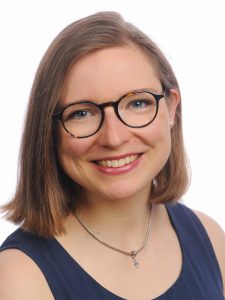
University Hospital Regensburg
Germany
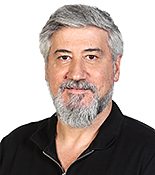
EMBL Heidelberg
Germany
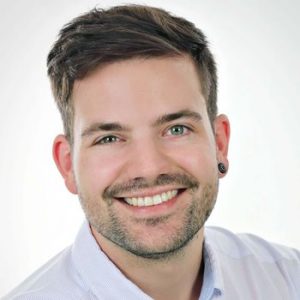
German Cancer Research Center and HI-STEM
Germany

Berlin Institute of Health at Charité Universitätsmedizin
Germany

University of California, Los Angeles
USA
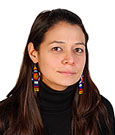
EMBL Heidelberg
Germany
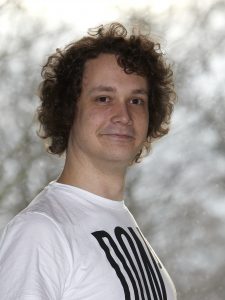
EMBL Heidelberg
Germany

Bernhard Nocht Institute for Tropical Medicine
Germany

University of Cambridge
UK
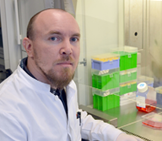
Hannover Medical School
Germany

Hannover Medical School
Germany
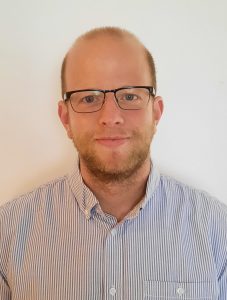
University Hospital Cologne
Germany

Duke University Medical Center
USA

EMBL Heidelberg
Germany
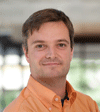
University of Zurich
Switzerland

University of Groningen
The Netherlands

The Jackson Laboratory
USA
(Virtual Speaker)

The Jackson Laboratory
USA

Hannover Medical School (University of Cologne from 01.07)
Germany

University Hospital Regensburg
Germany
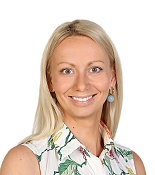
Course and Conference Officer
EMBL Heidelberg
Germany
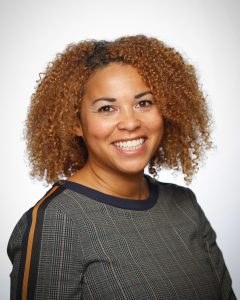
Training Laboratory Manager
EMBL Heidelberg
Germany
Got something to say? Tweet it with #EMBOHuMice
| Time | Speaker | Location |
|---|---|---|
| 11:45 – 12:00 | Bus departure from ISG Hotel to EMBL Heidelberg | ISG Hotel bus stop |
| 12:00 – 13:00 | Arrival & registrations with light lunch | ATC Entrance & Flex lab A & B |
| 13:00 – 13:45 | Welcome & introductions Renata Stripecke – Hannover Medical School, Germany Yvonne Yeboah – EMBL Heidelberg, Germany | Courtyard Room A & B |
| 13:45 – 14:45 | Icebreaker | Courtyard Room A & B |
| 14:45 – 15:15 | Coffee break | Flex Lab A & B |
| 15:15 – 16:15 | KEYNOTE LECTURE: Evolution of humanized mouse models: From mouse strains to human materials and need of standardizations Leonard Shultz – The Jackson Laboratory, USA (Virtual Speaker) | Courtyard Room A & B |
| 16:15 | Bus departure to Neckarmünzplatz | EMBL Bus stop |
| 16:45 – 18:15 | Guided tour of Heidelberg | |
| 18:15 – 18:45 | Free time in the city | |
| 18:45 | Bus departure from Neckarmünzplatz to ISG Hotel | |
| 19:15 | Barbeque dinner at ISG Hotel | ISG Hotel |
| Time | Speaker | Location |
|---|---|---|
| 08:45 – 09:00 | Bus departure from ISG Hotel to EMBL Heidelberg | ISG Hotel bus stop |
| 09:00 – 09:15 | Registration and check-in | ATC Entrance |
| PART 1: Human Hematopoiesis and Immunity Chairs: Renata Stripecke and Dominique Bonnet | ||
| 09:15 – 10:00 | Definition, characterization and regulation of human hematopoietic stem cells in humanized mice Dominique Bonnet – The Francis Crick Institute, UK | Courtyard Room A & B |
| 10:00 – 10:45 | Human B cell development in humanized mice Roberta Pelanda – University of Colorado Anschutz Medical Center, USA | Courtyard Room A & B |
| 10:45 – 11:15 | Coffee break | Flex Lab A & B |
| 11:15 – 12:00 | Use of adoptive cells and vectors for development of humanized mice Renata Stripecke – Hannover Medical School, Germany | Courtyard Room A & B |
| 12:00 – 12:45 | Development of human T and NK cells in humanized mice Michael Brehm – University of Massachusetts Medical School, USA (Virtual Speaker) | Courtyard Room A & B |
| 12:45 – 13:45 | Lunch Break | EMBL Canteen |
| PART 1: TECHNICAL LECTURES | ||
| 13:45 – 14:15 | Live Q&A to pre-recorded lecture: Refresher course flow cytometry analyses Diana Ordonez – EMBL Heidelberg, Germany | Courtyard Room A & B |
| 14:15 – 14:45 | Live Q&A to pre-recorded lecture: Standardization of multicolor flow cytometry panels and staining techniques Sebastian Theobald – University Hospital Cologne, Germany | Courtyard Room A & B |
| PART 1: PRACTICAL CLASS IN GROUPS | ||
| 14:45 – 18:15 | GROUP 1: Immune Reconstitution of huNSG: Staining and fixation of cells for flow cytometry analyses (with flexible coffee break) Diana Ordonez – EMBL Heidelberg, Germany Sebastian Theobald – University Hospital Cologne, Germany Andreas Schneider – Hannover Medical School, Germany | Training Lab A & B |
| 14:45 – 17:15 | GROUP 2: Tumor analyses of NSG: mouse handling for analyses of mice implanted with patient-derived malignancies, collection and processing of tissues for histology and microscopy analyses (with flexible coffee break) Anja Wege – University Hospital Regensburg, Germany Li-Chin Yao – The Jackson Laboratory, USA Veruschka Albert – University Hospital Regensburg, Germany Alessandra Piersigilli – Takeda Pharmaceutical Company Limited, USA | Training Lab A & B |
| 17:15 – 18:15 | GROUP 2: Roundtable discussion and guidelines: Minimal Information for Standardization of Humanized Mice (MISHUM). Tutorial “responsible conduct of research (RCR)”: Principles of Animal Welfare. Renata Stripecke – Hannover Medical School, Germany Anja Wege – University Hospital Regensburg, Germany | ATC Rooftop Lounge |
| 18:15 – 19:15 | Dinner break | EMBL Canteen |
| 19:15 – 21:00 | Poster session 1 (ODD numbers) with drinks & snacks | ATC Foyer |
| 21:00 | Bus departure to ISG Hotel | EMBL Bus stop |
| Time | Speaker | Location |
|---|---|---|
| 08:45 – 09:00 | Bus departure from ISG Hotel to EMBL Heidelberg | ISG Hotel bus stop |
| 09:00 – 09:15 | Registration and check in | ATC Entrance |
| PART 2: Human immuno-oncology Chairs: Brian Soper & Anja Wege | ||
| 09:15 – 10:00 | Applications of Humanized Platforms in Immuno-Oncology Brian Soper – The Jackson Laboratory, USA | Courtyard Room A & B |
| 10:00 – 10:45 | Breast cancer models for immuno-oncology research Anja Wege – University Hospital Regensburg, Germany | Courtyard Room A & B |
| 10:45 – 11:15 | Coffee break | Flex Lab A & B |
| 11:15 – 12:00 | Application of humanized mouse models in drug discovery Johannes Sam – Roche Zurich, Switzerland (Virtual Speaker) | Courtyard Room A & B |
| 12:00 – 12:45 | BLT models for biosimilar research, CRS Kristina Howard – Center for Drug Evaluation and Research, USA | Courtyard Room A & B |
| 12:45 – 13:45 | Lunch Break | EMBL Canteen |
| PART 2: TECHNICAL LECTURES | ||
| 13:45 – 14:15 | Live Q&A to pre-recorded lecture: Refresher course histopathology: Processing and new analytical tools Alessandra Piesigilli – Takeda Pharmaceutical Company Limited, USA | Courtyard Room A & B |
| 14:15 – 14:45 | Live Q&A to educational videos: Mouse handling and tumor implantations Anja Wege – University Hospital Regensburg, Germany Li-Chin Yao – The Jackson Laboratory, USA | Courtyard Room A & B |
| PART 2: PRACTICAL CLASS IN GROUPS | ||
| 14:45 – 18:15 | GROUP 2: Immune Reconstitution of huNSG: Staining and fixation of cells for flow cytometry analyses (with flexible coffee break) Diana Ordonez – EMBL Heidelberg, Germany Sebastian Theobald – University Hospital Cologne, Germany Andreas Schneider – Hannover Medical School, Germany | Training Lab A & B |
| 14:45 – 17:15 | GROUP 1: Tumor analyses of NSG: mouse handling for analyses of mice implanted with patient-derived malignancies, collection and processing of tissues for histology and microscopy analyses (with flexible coffee break) Anja Wege – University Hospital Regensburg, Germany Li-Chin Yao – The Jackson Laboratory, USA Veruschka Albert – University Hospital Regensburg, Germany Alessandra Piesigilli – Takeda Pharmaceutical Company Limited, USA | Training Lab A & B |
| 17:15 – 18:15 | GROUP 1: Roundtable discussion and guidelines: Minimal Information for Standardization of Humanized Mice (MISHUM). Tutorial “responsible conduct of research (RCR)”: Principles of Animal Welfare Renata Stripecke – Hannover Medical School, Germany Anja Wege – University Hospital Regensburg, Germany | ATC Rooftop Lounge |
| 18:15 – 19:15 | Tapas dinner | ATC Foyer |
| 19:15 – 21:00 | Poster session 2 (EVEN numbers) with drinks & snacks | ATC Foyer |
| 21:00 | Bus departure to ISG Hotel | EMBL Bus Stop |
| Time | Speaker | Location |
|---|---|---|
| 08:45 – 09:00 | Bus departure from ISG Hotel to EMBL Heidelberg | ISG Hotel Bus stop |
| 09:00 – 09:15 | Registration and check-in | ATC Entrance |
| PART 3: Human Oncology (Cdx And Pdx Models) Chair: Jan Jabob Schuringa | ||
| 09:15 – 10:00 | Clonal heterogeneity in human AML Jan Jabob Schuringa – University of Groningen, The Netherlands | Courtyard Room A & B |
| 10:00 – 10:45 | Absence of NKG2D ligands defines leukaemia stem cells and mediates their immune evasion Claudia Lengerke – University Hospital Tübingen, Germany (Virtual Speaker) | Courtyard Room A & B |
| 10:45 | Group photo | Outside IC |
| 10:45 – 11:15 | Coffee break | Flex Lab A & B |
| 11:15 – 11:45 | Live Q&A to pre-recorded lecture: Application of PDX for triple negative marker breast cancer research Francesca Menghi – The Jackson Laboratory, USA (Virtual Speaker) | Courtyard Room A & B |
| 11:45 – 12:45 | Roundtable discussion and guidelines: Minimal Information for Standardization of Humanized Mice (MISHUM). Tutorial “responsible conduct of research (RCR)”: Data Acquisition, Management, Sharing and Ownership. Christian Muenz, Jan Jabob Schuringa, Brian Soper, Renata Stripecke, Anja Wege, Vladimir Benes | ATC Rooftop Lounge |
| 12:45 – 13:45 | Lunch Break | EMBL Canteen |
| PART 3: PRACTICAL CLASS | ||
| 13:45 – 17:15 | PRACTICAL: Genome, transcriptome and flow cytometry technologies to dissect clonal heterogeneity in cancer (with flexible coffee break) Jan Jabob Schuringa – University of Groningen, The Netherlands Jan Provaznik – EMBL Heidelberg, Germany | Courtyard Room A & B |
| 17:15 | Bus Departure to ISG Hotel | EMBL Bus stop |
| 18:30 – 19:30 | Buffet dinner at the ISG Hotel | ISG Hotel |
| 19:30 – 20:30 | Networking with drinks | ISG Hotel |
| Time | Speaker | Location |
|---|---|---|
| 08:45 – 09:00 | Bus departure from ISG Hotel to EMBL Heidelberg | ISG Hotel bus stop |
| 09:00 – 09:15 | Registration and check-in | ATC Entrance |
| PART 4: Infections with Human Pathogens Chair: Christian Muenz | ||
| 09:15 – 10:00 | EBV and KSV infections Christian Muenz – University of Zurich, Switzerland | Courtyard Room A & B |
| 10:00 – 10:45 | Emerging Viral Infections Estefania Rodriguez – Bernhard Nocht Institute for Tropical Medicine, Germany | Courtyard Room A & B |
| 10:45 – 11:15 | Coffee break | Flex Lab A & B |
| 11:15 – 12:00 | HIV Scott Kitchen – University of California Los Angeles, USA | Courtyard Room A & B |
| 12:00 – 12:45 | Poster session (continued) | ATC Foyer |
| 12:45 – 13:45 | Lunch Break | EMBL Canteen |
| 13:45 – 15:15 | PRACTICAL CLASS: GROUP 1: Immunofluorescence of viral antigens in histology sections Christian Muenz – University of Zurich, Switzerland Estefania Rodriguez – Bernhard Nocht Institute for Tropical Medicine, Germany GROUP 2: Interactive insight into single-cell analyses Simon Haas – Berlin Institute of Health at Charité Universitätsmedizin (BIH), Germany Florian Grünschläger – German Cancer Research Center and HI-STEM, Germany | Training Lab A & B |
| 15:15 – 15:45 | Coffee break | Flex Lab A & B |
| 15:45 – 17:15 | PRACTICAL CLASS: GROUP 2: Immunofluorescence of viral antigens in histology sections Christian Muenz – University of Zurich, Switzerland Estefania Rodriguez – Bernhard Nocht Institute for Tropical Medicine, Germany GROUP 1: Interactive insight into single-cell analyses Simon Haas – Berlin Institute of Health at Charité Universitätsmedizin (BIH), Germany Florian Grünschläger – German Cancer Research Center and HI-STEM, Germany | Training Lab A & B |
| 17:15 – 18:15 | Roundtable discussion and guidelines: Minimal Information for Standardization of Humanized Mice (MISHUM). Tutorial “responsible conduct of research (RCR)”: Principles of informed consent for use of materials of human subjects. Christian Muenz, Jan Jabob Schuringa, Karl-Dimiter Bissig, Brian Soper, Renata Stripecke, Anja Wege | ATC Rooftop Lounge |
| 18:15 | Bus departure to ISG Hotel | EMBL Bus stop |
| 19:00 | Bus departure from ISG Hotel to Heidelberg downtown | ISG Hotel bus stop |
| 19:30 – 21:00 | Course dinner downtown | Wirtshaus zum Nepomuk |
| Time | Speaker | Location |
|---|---|---|
| 08:45 – 09:00 | Bus departure from ISG Hotel to EMBL Heidelberg | ISG Hotel bus stop |
| 09:00 – 09:15 | Registration and check-in | ATC Entrance |
| PART 5: Regeneration of Human Tissues And iPSC Chair: Karl-Dimiter Bissig | ||
| 09:15 – 10:00 | Overcoming liver injury through regenerative medicine Amar Sharma – Hannover Medical School, Germany | Courtyard Room A & B |
| 10:00 – 10:45 | Human liver chimeric mouse models – the chances & challenges Karl-Dimiter Bissig – Duke University Medical Center, USA | Courtyard Room A & B |
| 10:45 – 11:15 | Coffee break | Flex Lab A & B |
| 11:15 – 12:00 | Humanised mouse models to for investigation of the immune response to organoids Kourosh Saeb-Parsy – University of Cambridge, UK | Courtyard Room A & B |
| 12:00 – 12:45 | Lung implantation Angela Wahl – UNC Chapel Hill, USA | Courtyard Room A & B |
| 12:45 – 13:30 | Feedback & Closing remarks Renata Stripecke – Hannover Medical School, Germany Karl-Dimiter Bissig – Duke University Medical Center, USA | Courtyard Room A & B |
| 13:30 – 14:30 | Lunch break | EMBL Canteen |
| 14:30 | Bus departure to Heidelberg main train station & city centre | EMBL Bus stop |
The course is limited to 16 participants. For selection purposes, please note that your application will not be considered without a letter of motivation.
Registration Fees include admission, course materials, COVID-19 safety measures, meals and coffee breaks.
This EMBO course includes accommodation and transportation to and from the ISG Hotel to the venue.
| Academia | €500 |
| PhD Student | €500 |
| Industry | €1000 |
The registration fee should be paid only after acceptance to the course. The results will be announced approximately 2-3 weeks after the application deadline.
After you have logged in and successfully registered, you will receive an email asking you to submit your motivation letter. Click on the link provided and enter your motivation letter in the text box provided. Alternatively you can submit your motivation letter by clicking on the link on the confirmation page directly after registering.
Instructions
Please note:
For more detailed information, follow the instructions provided in our video on how to submit a course motivation letter.
For further information about registration and motivation letter submission please refer to the FAQ page.
Limited financial assistance is provided by the EMBL Advanced Training Centre Corporate Partnership Programme and EMBO in the form of both registration fee waivers and travel grants. Availability is limited to participants attending on-site events in Heidelberg and will be indicated during the abstract or motivation letter submission process.
Your place in the meeting is only confirmed by paying the registration fee, which is mandatory even when receiving a fee waiver.
The fee waiver will cover the registration sum that you have paid to attend the course or conference.
The travel grant will cover the cost of travel (airfare, train, bus, taxi, accommodation, visa, and/or registration fees*) and is provided up to specified caps which are normally as follows:
– up to €400 for participants travelling to an EMBL Course, EMBL Conference or EMBO|EMBL Symposium from within Europe.
– up to €1000 for participants travelling to an EMBL Course, EMBL Conference or EMBO|EMBL Symposium from outside Europe.
– up to €500 for any participant travelling to an EMBO Practical Course or EMBO Workshop.
– up to €1000 for any participant working in Chile, India, Singapore or Taiwan travelling to an EMBO Practical Course or EMBO Workshop.
*Registration fees are only covered for EMBO Practical Courses or EMBO Workshops
The organisers may reduce the grant cap to accommodate more participants. Recipients will be notified of their travel cap amount when they are informed of the outcome of their application. Original receipts must be provided with your signature for all costs incurred within two months of completion of travel. Scanned copies cannot be accepted.
For EMBO Practical Course or EMBO Workshop participants with children, there is the possibility to apply for a childcare grant to offset child care costs incurred by participants or speakers when participating at a course or conference. Eligible costs include fees for a baby-sitter or child-care facility, travel costs for a care giver, or travel costs for taking the child to the meeting etc. Please note that priority will be given to early stage researchers. A maximum amount of 500 EUR can be awarded per participant applying for an EMBO Childcare Grant. In order to apply for this grant for EMBO Workshops, you must be registered by the abstract submission deadline.
You may apply for financial assistance when submitting your motivation letter for courses, and abstract for conferences. In your application you will be asked to answer questions regarding why your lab cannot fund your attendance and how your attendance will make a difference to your career. Application for financial support will not affect the outcome of your registration application.
The scientific organisers will select the recipients of all financial assistance during the motivation letter or abstract selection process. Results will be announced approximately 6-8 weeks before the event start date, however for some events this may be delayed. Selection results do not impact your admission to the meeting. Selection is based on your current work or study location, the reasons for needing financial support and the impact this event will have on your career.
Costs will be reimbursed after the meeting only once a reimbursement form and original receipts (from travel costs) have been received.
View our list of external funding opportunities and information on attending a conference as an event reporter.
For further information about financial assistance please refer to the FAQ page.
The registration fee includes accommodation for 6 nights (Saturday 11 June – Friday 17 June 2022) at the ISG Hotel in a single room, including breakfast. Any additional nights need to be booked and paid for by you to the hotel. We recommend that all course participants stay at the ISG Hotel, which is the dedicated hotel for the course.
Shuttle buses will go from the ISG Hotel to EMBL and back, mornings and evenings. A bus schedule and location of the bus stops will be made available prior to the meeting.
Address: EMBL Heidelberg, Meyerhofstraße 1, 69117 Heidelberg, Germany
For further information on getting to EMBL Heidelberg visit our Travel Information page.
For enquiries about accommodation and local transportation please refer to the FAQ page.
The EMBL eCampus learning platform will be used to collaborate, communicate and network with all of the course participants. All participants will receive information on how to join shortly before the course. We recommend using Chrome, Safari or Mozilla Firefox browsers for eCampus.
Please find additional information including FAQs, terms and conditions, COVID-19 safety policy and travelling to EMBL on our Information for Participants page.
COVID-19 information for onsite events at EMBL Heidelberg can be found in our COVID-19 FAQs.
Sponsorship opportunities
We offer a variety of event sponsoring possibilities, with the flexibility to select a set sponsorship package or combine individual sponsorship options to suit your event budget. Discounts are available for companies sponsoring multiple events at EMBL Heidelberg. View other conferences, or contact sponsorship@embl.de for further information.
If you are interested in becoming a media partner of this event, please visit our media partnerships webpage.

Date: 12 - 17 Jun 2022
Location: EMBL Heidelberg
Venue: EMBL Advanced Training Centre
Deadline(s):
Application: Closed
Organisers:
Contact: Raili Pall